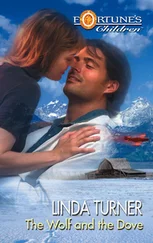“Now who’s tempting fate?” she said.
“It’s only a song,” he said, his words slurring as the pill tugged him into unconsciousness.
“Remember that when we’re saying hi to King Neptune.”
“Hey,” he began. The rest of his reply disappeared into a mumble.
Despite herself, Susan knocked on the cabin wall. It wasn’t wood, but it was the best she had.
The next hour passed with stomach-churning monotony. The ferry rose and fell, rose and fell. Alan snored, snorted, went back to snoring. The distant engine churned steadily. In the corridor outside the cabin, a little girl’s voice asked a question Susan couldn’t decipher. The ocean rushed along the hull. A woman, likely the girl’s mother, said they were just going for a wee lie down. The smell of fuel made Susan’s nostrils bristle. Someone laughed as they passed the cabin. The ship slid down into a pause that lasted a second too long, as if the waves were weighing whether to let the vessel continue its descent, all the way down. A woman, the same one from before, said she was just going to the toilet. The sea smacked the ship like a giant’s hand, BANG.
In an odd sort of way, Susan has thought, the trip has been all about the ocean, salt water threading its way through her and Alan’s winter vacation like a recurring theme in a longer piece of music. The flight across the north Atlantic was only the second time she had traversed the ocean, and she spent the daylit hours of the voyage gazing out the scuffed and scratched window beside her seat at the corrugated gray expanse visible through the gaps in the clouds below. Alan’s parents’ house in North Queensferry was one of a half-dozen on a cul-de-sac set on a high bluff overlooking the stretch where the Forth River merged with the North Sea. The sea was a constant companion as they drove their tiny rental up Scotland’s east coast, stopping for an early lunch at an Indian place outside St. Andrew’s, a wander around the ruins at Stonehaven, and then a couple of days in Aberdeen, revisiting Alan’s university haunts and a few of his friends who had settled in the city. With one of those friends and his partner, they walked a rocky beach washed by the waves they would ride to Shetland, where Alan’s friend Giorgio ran a small chip shop overlooking Lerwick harbor. (“Giorgio?” Susan said. “What kind of Scottish name is that?” “His dad’s from Florence,” Alan said.)
Once they were ashore on Shetland, however, something about the sea changed—or, to be more accurate, something about her perception of it shifted. The afternoon of their arrival, Giorgio took them for a quick jaunt to a spot where the land on either side of them shrank toward the road, until they were between a pair of narrow beaches onto which water splashed in long foaming rolls. “On that side,” Giorgio said, pointing right, “is the North Sea. On this side,” pointing left, “is the Atlantic.” No matter where they went, it seemed, salt water was visible. When she mentioned this to Giorgio, trying to keep her tone light, care free, he nodded and said, “Aye, someone told me once you’re never more than three miles from open water on Shetland.” No doubt the landscape of the island, low hills bare of trees, contributed to the sensation, but she began to feel horribly exposed, surrounded by the ocean, which, if you thought about it, could rise and wash over the place without much effort at all.
Nor did the stories Giorgio liked to tell help matters. An amateur historian of the Shetlands and their surrounds, he possessed a seemingly endless supply of narratives about the islands. In the majority of them, the sea figured prominently. They would begin with a bold, almost ridiculous assertion. “You know,” he would say over drinks at one of the pubs, “Shetland was part of the actual Atlantis.” Then, as she and Alan coughed their beers, he would raise his hands and say, “No, I’m not talking about that Disney rubbish. I mean Doggerland. You’ve heard of it, yeah? No? Ten, eleven thousand years ago, during the last ice age, all the seas were lower. The water was bound up in the glaciers, right? From Shetland down to Orkney and Scotland, over to Europe, was dry land. You could walk across the North Sea, the English Channel, and folk did. There was a whole civilization spread across the place. As the ice started to melt, though, the sea crept closer. Some of the archeologists think it was a process of years, decades, and the people living there had plenty of time to pack their things and leave. I’ve heard others say it was more catastrophic, an ice dam broke and sent hundreds of millions of gallons of water rushing through all this low-lying land. That’s where your story of Atlantis comes from.”
Another afternoon, as they were sitting in Giorgio’s car on a local (smaller) ferry from the main island to the neighboring island of Yell, Giorgio said, “When you were coming up, did you notice there was a point the sea went all choppy—I mean, worse than what you’d been used to?” Susan and Alan exchanged glances. Had they? “Maybe,” Alan said. “Aye, that was you passing Fair Isle,” Giorgio said. “The sea behaves funny there, has to do with currents or some such. You know there was a fellow drowned out there? It was during my granddad’s time, a man from down in Edinburgh, a professor—from Edinburgh University, must have been. He was an anthropologist, studied the prehistoric sites in the north of Scotland, the Orkneys, up in Shetland. The chap took an interest in Fair Isle—in the ocean floor off the island. Something had washed up on one of the island’s beaches, and it found its way into the professor’s hands. I’m not sure what it was, but it got the man all worked up. He decided he needed to have a look under the water next to the island. This was none of your scuba diving; this was one of those suits with the big round helmet and the hose up to a boat on the surface. Fellow hired a couple of locals out of Aberdeen to man the boat and mind the air pump, and another pair of lads from Fair Isle to help them. The lot of them took the boat to the spot the professor had calculated was the best bet to search for more of whatever it was brought him there in the first place. Over the side he went. The rig was what you’d call low-tech, no diver’s telephone. Well. Maybe an hour into the professor’s dive, a storm blew in. The sky went dark, the wind rose, and the next anyone knew, the rain was bucketing down, the waves spilling over the sides. It’s no fun to be in a big ship when the weather turns against you, and this boat was far from big. At first, the lads thought they could ride out the storm. I gather they gave it their best, but it wasn’t long before they realized theirs was not a workable plan. The sea was heaving, and none of them had the experience to maintain the ship’s position in these conditions. They tried to contact the professor—there was no telephone, right, but they had this system of bells he’d set up for basic communication. One bell on the boat, and a tiny one in the helmet. I’m not sure exactly how it worked. Morse Code, I’m guessing—had to be. Anyway, as things went from bad to worse topside, the crew were signaling the professor, SOS, COME BACK. If he heard them, he didn’t answer. Now the boat was riding waves halfway to vertical. Water was foaming onto the deck from every side. It was all the lads could do to keep from being swept overboard. And still no response from the professor. Funny, the things you’ll do in a crisis. One of the crew grabbed a hatchet and, chop , cut the diving suit’s air hose. It was the end for the professor. You have to hope he found whatever he was looking for.” Susan said, “That’s terrible. What happened to the crew?” “Oh,” Giorgio said, “they made it back safely. Went straight to the police and confessed everything. Only problem was, each man said he was the one had picked up the hatchet, and nothing anyone could threaten or promise would persuade any of them to change his story. In the end, none of them was charged, and the professor’s death was ruled an accident. The body was never recovered.”
Читать дальше












